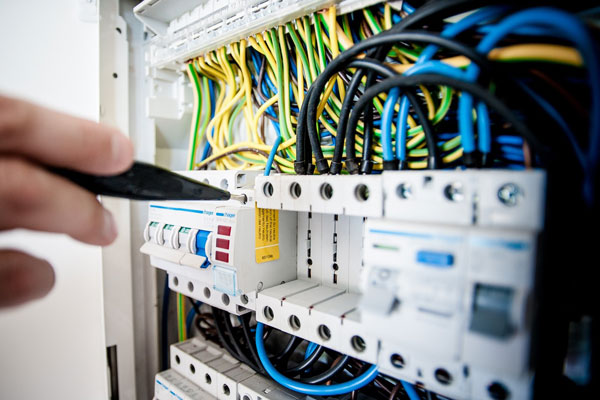At Kitchener Electricians, our team of electrical contractors boasts an impressive record in managing both residential and commercial electrical projects. Our clients consistently applaud our professionalism, dependability, meticulous attention to detail, and proficiency. If you’re on the hunt for a licensed commercial electrician, it’s worth noting that the requirements and tasks in a commercial/office environment differ from those in a low rise residence.
Here are some distinctions:
A) Education:
While the initial training for all electricians is the same, there is additional instruction needed to specialize in the commercial sector. Anyone aspiring to be an electrician in Ontario needs to: i) complete a Grade 12 high school education, ii) enroll in a one-year certification program to prep for an apprenticeship, iii) undertake an apprenticeship program lasting 9,000 hours, equivalent to roughly five years of hands-on training.
After accomplishing these prerequisites, the apprentice has the opportunity to enroll in further courses focusing on the commercial sector, known in Ontario as Electricians Construction and Maintenance. This course can be an added specialization alongside the Low Rise Residential Sector if the apprentice plans to offer residential services too.
B) Educational Path:
If a budding electrician intends to branch into the Construction and Maintenance section of electrical contracting, essentially covering commercial, institutional and industrial work, they must undergo further coursework and training (potentially up to 4,000 extra hours in certain scenarios).
C) Tools and Materials:
Handling larger buildings with complex electrical systems often demands commercial electricians to deal with higher voltages and power, sometimes as high as 480V. Accommodating these high-power needs, the cables are encased in a robust sheath.
D) Project Magnitude and Complexity:
Commercial electricians offer their services to various commercial establishments, including businesses, high-rise residential buildings, and institutions. Due to the large-scale nature of such properties, the electricians must have adequate knowledge and expertise in this field. A commercial electrical contractor can readily undertake residential projects, but a contractor lacking ICI (institutional, commercial, industrial) training will be inadequately equipped to work in a commercial environment.
E) Regulations and Standards:
All electricians are required to follow compliance rules and conduct their operations in line with the current Bylaws and codes. The specific requirements of these regulations and standards slightly differ between residential and commercial works. As such, a competent electrician assigned to carry out commercial electrical tasks needs to be thoroughly knowledgeable about the distinct regulations and standards pertaining to the building they’re working on.
That sums up some of the critical differences between the responsibilities of residential and commercial electricians. Before hiring an electrician, you must do your research and pose additional queries like:
- Are you ECRA/ESA certified and insured?
- Have you taken on any commercial projects lately? How many in the previous year?
- Can you provide any references?
In addition to these, feel free to ask any other queries you deem essential, particularly those related to the job in hand. We at
Tri-City Electricians in Kitchener are delighted to offer commercial electrical services in a wide range of environments, including schools, offices, institutions, residential high-rises, and other buildings.

